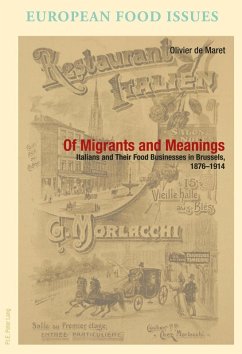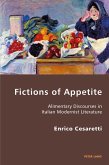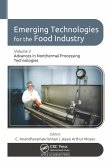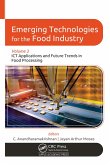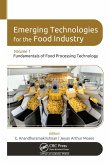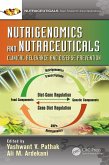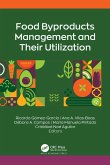The circulation of goods, ideas, and people has shaped a common European food culture. But practical questions pertaining to this process remain unanswered. How and why do changes in food habits occur and what are their implications? What are the social and cultural processes involved between hosts and migrants and how do they play out in the face of economic and political imperatives? This book addresses these questions through the combined study of food and migration in the past.
By building on studies in the fields of anthropology, geography, history, and sociology, the present monograph analyzes the public foodways of Italian migrants in Brussels at the turn of the twentieth century as a way of exploring how migrants used the business of food to construct meaning and articulate sentiments of belonging. It describes and discusses Italian neighborhoods, migratory patterns, occupations, and food businesses (i.e. cafés, restaurants, shops, and peddling activities) by applying quantitative and qualitative methods of interpretation to archival, business, journalistic, and photographic sources. The study bridges a gap in the historiography of Italian food and migration by providing a Western European counterpoint to Italian experiences in North and South America and a thorough discussion of the forging of Italianness outside of Italy at a crucial time in that nation's history. This book ultimately underlines the creative and innovative role migrants play in the social and cultural processes that shape human societies.
By building on studies in the fields of anthropology, geography, history, and sociology, the present monograph analyzes the public foodways of Italian migrants in Brussels at the turn of the twentieth century as a way of exploring how migrants used the business of food to construct meaning and articulate sentiments of belonging. It describes and discusses Italian neighborhoods, migratory patterns, occupations, and food businesses (i.e. cafés, restaurants, shops, and peddling activities) by applying quantitative and qualitative methods of interpretation to archival, business, journalistic, and photographic sources. The study bridges a gap in the historiography of Italian food and migration by providing a Western European counterpoint to Italian experiences in North and South America and a thorough discussion of the forging of Italianness outside of Italy at a crucial time in that nation's history. This book ultimately underlines the creative and innovative role migrants play in the social and cultural processes that shape human societies.
Dieser Download kann aus rechtlichen Gründen nur mit Rechnungsadresse in A, B, BG, CY, CZ, D, DK, EW, E, FIN, F, GR, HR, H, IRL, I, LT, L, LR, M, NL, PL, P, R, S, SLO, SK ausgeliefert werden.

